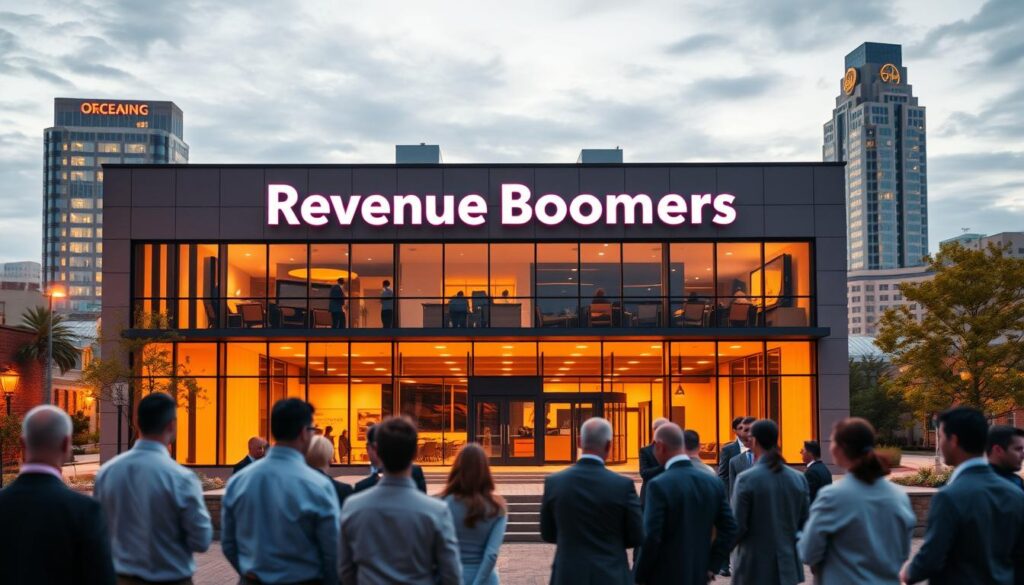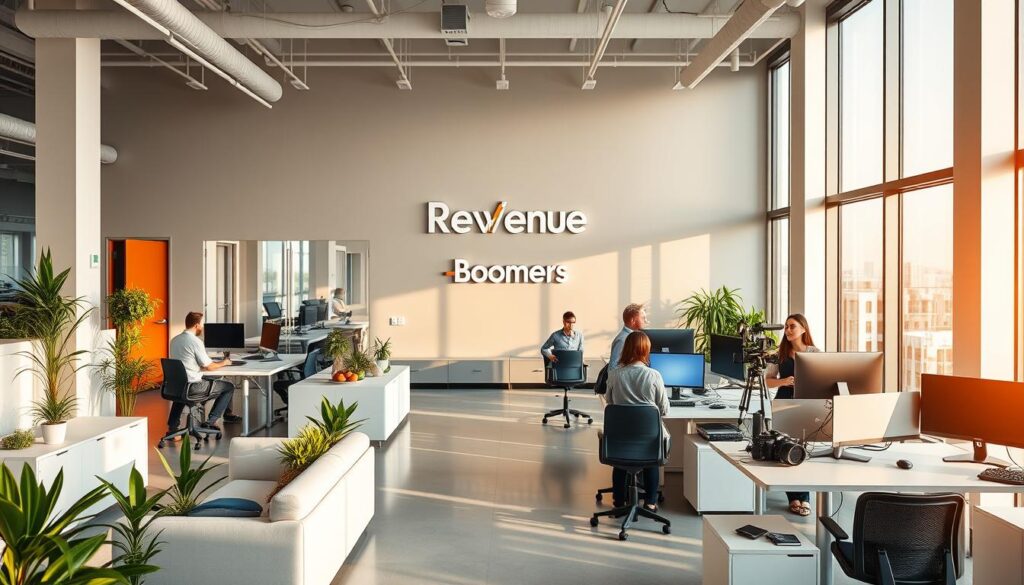Ever wondered why some online stores do great while others don’t? Learning about e-commerce SEO could be the answer. This guide explores what e-commerce SEO is, why it matters, and how to boost your store’s visibility and traffic.
E-commerce SEO helps your online store show up better in search results. It’s all about getting more people to visit and buy from your site. Unlike regular SEO, e-commerce SEO focuses on people ready to make a purchase.
This guide will show you how SEO can save you money compared to ads. It’s about getting more quality visitors to your site. We’ll cover how to find the right keywords and optimize your pages to make your e-commerce site shine.
Key Takeaways
- E-commerce SEO enhances visibility and conversion rates for online businesses.
- It targets transactional queries to attract high-intent traffic.
- SEO offers a cost-effective alternative to paid advertising.
- Keyword research is vital for understanding customer search behavior.
- On-page optimization dramatically improves search rankings.
- Effective SEO strategies can lead to significant increases in organic traffic.
Understanding E-commerce SEO
E-commerce SEO makes an online store more visible in search results. It’s key for getting more traffic, sales, and building a strong brand. Good SEO includes quality content, site structure, keywords, and backlinks. It helps retailers reach their audience without relying on ads.
Definition of E-commerce SEO
E-commerce SEO means making an online store better for search engines. This includes optimizing product descriptions, headlines, and links. Using the right keywords helps attract more visitors.
Every page, from the homepage to blog posts, needs the right keywords. This makes the site more visible and user-friendly. It also boosts search rankings.
Importance of SEO for Online Stores
SEO is crucial for online stores. Better rankings mean more visitors and sales. Good SEO practices offer many benefits, like:
- More organic traffic with smart keyword use.
- Less need for paid ads to attract customers.
- More visibility for non-product pages.
- Better site navigation with clear links and structure.
Following the three-click rule improves site usability. It lets visitors find what they need in just three clicks. An SEO audit can spot areas for improvement and guide a focused strategy.
What Is SEO For E-commerce
Understanding SEO for e-commerce is key for online businesses to grow. It involves several important parts. These include finding the right keywords, optimizing your site, improving technical aspects, creating quality content, and getting backlinks.
Each part works together to help your site show up better in search results. This can lead to more visitors and sales.
Key Components of E-commerce SEO
Here are the main parts of e-commerce SEO:
- Keyword Research: Using long-tail keywords can bring in more relevant traffic. This can lead to better engagement and sales.
- Title Tags: Make title tags about 55 characters long. This ensures they show fully in search results and clearly describe the page’s content.
- Meta Descriptions: Keep meta descriptions around 160 characters. They should be short and enticing to get people to click.
- User-Friendly URLs: Make URLs easy to read and remember. This helps users come back to your site.
- Organized Site Architecture: A clear site structure makes it easy for users to find what they need. It also helps your site grow.
Role of Keywords in E-commerce SEO
Keywords are crucial for e-commerce SEO. Choosing the right keywords helps your site rank better in search results. A good keyword strategy guides how you organize your site and what content to create.
By focusing on the right keywords, you can talk directly to your audience. This helps guide them through the shopping process.

E-commerce SEO Strategies
Improving your online store’s visibility is key. Start with keyword research to find what people search for. Tools like Semrush help by showing search volume and competition.
Keyword Research Techniques
Know your audience to find the right keywords. Create buyer personas to guide your search. Use tools and analyze competitors to find unique keywords.
On-Page SEO Best Practices
On-page SEO is crucial for your online store. Focus on:
- Optimizing product descriptions with targeted keywords.
- Improving page loading speed to enhance user experience, as 51% of online shoppers in the U.S. abandon slow websites.
- Leveraging metadata to provide search engines with clear information about your pages.
- Creating user-friendly URLs that reflect the content of the page.
- Employing header tags effectively to organize content and improve readability.
These practices boost your site’s ranking and user experience. Quality content builds brand authority and loyalty, setting you apart from competitors.
| Factor | Importance |
|---|---|
| Keyword Research | Identifies terms your customers search for |
| Page Speed | Critical for retaining customers and reducing bounce rates |
| Optimized Metadata | Enhances visibility in SERPs |
| User-Friendly URLs | Improves navigation and indexing |
| Header Tags | Organizes content for better readability |
Benefits of SEO for E-commerce Websites
SEO strategies offer many benefits for e-commerce sites. They help attract more visitors and increase sales.
Increased Organic Traffic
SEO boosts organic traffic for e-commerce sites. Sites at the top get about 20.5% of all traffic. Those on the first page get 67.60% of clicks.
This shows SEO improves visibility and engagement. It leads to more sales and conversions.
Cost-Effectiveness Compared to Paid Ads
SEO is a cost-effective marketing tool. It’s cheaper than paid ads. Once a site ranks high, it saves money on traffic.
SEO can give high returns on investment. It’s a smart choice for e-commerce marketing.
Enhanced Brand Credibility
SEO boosts brand trust. Customers trust sites that rank high. They are 85% more likely to buy from them.
This trust builds loyalty and drives sales. Companies like Ruggable have grown their brands with SEO.

Improving E-commerce SEO Rankings
To boost e-commerce SEO rankings, a mix of strategies is needed. Creating quality content is key. It draws in visitors and keeps them coming back. It also helps in converting them into customers.
But, technical SEO is also vital. It helps search engines find and index your site better. This makes your site more visible online.
Importance of Quality Content
Quality content is crucial for online stores’ SEO. With most online experiences starting with a search, good content can make all the difference. It attracts visitors and turns them into customers.
Product descriptions and guides are especially important. They help visitors understand what they’re buying. Blog posts that update regularly keep your content fresh and interesting.
A good content strategy includes:
- In-depth product information
- Customer testimonials and reviews
- Buying guides and how-tos
Technical SEO Considerations
Technical SEO is also essential. It includes site architecture, page speed, and indexing. These factors greatly impact your site’s performance.
Most of a website’s traffic comes from organic search. So, making sure your site performs well in these areas is crucial. Key areas to focus on are:
- Mobile-friendliness: More users shop on mobile devices
- Page speed: Affects bounce rates and mobile usability
- Structured data: Helps search engines understand content
Improving these technical aspects is the foundation of a strong e-commerce strategy. A well-optimized site helps search engines find and index your pages better. This boosts your site’s visibility online.
By focusing on both quality content and technical SEO, you can see real results. This approach is key to success in the e-commerce world.

| Factor | Impact on SEO |
|---|---|
| Quality Content | Enhances engagement and conversion rates |
| Page Speed | Reduces bounce rates, improves user satisfaction |
| Mobile Optimization | Increases accessibility and user base |
| Internal Linking | Strengthens site structure, improves crawlability |
Optimizing Product Pages for SEO
Creating effective product pages is key for boosting visibility and driving sales in e-commerce. It’s not just about adding keywords. It’s about a strategic approach to content and visuals. Knowing what engages customers can make their shopping experience better, leading to more sales.
Creating Compelling Product Descriptions
Engaging and concise product descriptions are crucial in convincing buyers. Write descriptions that highlight the unique benefits and features of each product. Use a title tag of 30 to 60 characters for better search visibility, and a meta description of 70 to 155 characters.
Include product attributes as linked elements to improve internal linking. This supports better optimization. Always check for broken links to ensure a smooth user experience, which is key for keeping customers.
Utilizing High-Quality Images and Videos
Visual content is vital for product page optimization. High-quality images and videos show the product well and build user confidence. Pages with multimedia elements can lead to more sales.
Pages with customer reviews see a 52.2% increase in conversion rates. Adding structured data helps brands rank for rich snippets, attracting more clicks and sales. Fast, mobile-optimized pages also improve user experience and engagement.
| Aspect | Recommendation |
|---|---|
| Title Tag Length | 30-60 characters |
| Meta Description Length | 70-155 characters |
| Conversion Rate Increase with Reviews | 52.2% |
| Impact of High-Quality Visuals | Increases user confidence and sales |
| Speed Optimization | Fast-loading pages improve revenue |
E-commerce SEO Tools You Should Know
Choosing the right e-commerce SEO tools is key for online store success. These tools help with keyword research and improve site performance. This leads to better visibility and more traffic. Knowing your options helps businesses pick the best tools for their needs.
Top Keyword Research Tools
Keyword research tools are essential for finding valuable keywords. These keywords attract targeted traffic to e-commerce sites. Here are some top picks:
| Tool | Price | Key Features |
|---|---|---|
| Google Keyword Planner | Free | Comprehensive keyword database, search volume data |
| Semrush | $119.95 per month | Competitor analysis, keyword tracking, site audit |
| Ahrefs | $99 per month | Backlink tracking, content analysis, keyword explorer |
| AnswerThePublic | $99-$399 per month | User query insights, content topic generation |
| Screaming Frog | $177 per year | SEO audits, on-page analysis, site speed testing | SpyFu | $33-$299 per month | Competitor keyword research, ad performance tracking |
Site Audit and Optimization Tools
Site audit tools are vital for checking website performance and finding areas to improve. Some notable tools include:
- Google PageSpeed Insights: Checks page speed and suggests improvements.
- Screaming Frog: Provides detailed SEO audits to fix issues.
- Ahrefs: Offers comprehensive technical SEO audits and performance metrics.
- SEOQuake: Enhances on-page SEO analysis and site metrics tracking.
- Moz: Helps with site audits and SEO insights.
Choosing the right e-commerce SEO tools is crucial for success. By using keyword research and site audit tools, businesses can track their performance. This helps them optimize their content to boost search engine rankings.
E-commerce SEO Techniques for Success
Good e-commerce SEO techniques are key to getting your online store seen by more people. Using smart link-building strategies can really boost your site’s authority. Getting links from trusted sites helps your store rank better in search results.
Link Building Strategies
Link building is a big part of a strong e-commerce SEO plan. Getting quality backlinks can help your site rank higher and be seen more. Here are some top ways to do it:
- Guest Blogging: Work with blogs that fit your niche to share links back to your site.
- Influencer Collaborations: Team up with influencers in your field to link to your product pages.
- Resource Pages: Get your site listed on important resource pages in your industry.
- Content Marketing: Make content that people want to share and link to, appealing to your audience.
Leveraging Social Media for SEO
Using social media with your e-commerce SEO can really expand your reach. Social media signals can help your site rank better and make your brand more known. You can use platforms like Facebook, Instagram, and Twitter to share cool content that leads people to your products. Here’s how:
- Sharing Engaging Visuals: Post high-quality images and videos of your products to grab attention.
- Utilizing Hashtags Effectively: Use the right hashtags to get more seen on social media.
- Encouraging User-Generated Content: Start campaigns that get customers to share their experiences with your products.
- Consistency in Posting: Keep posting regularly to keep your audience interested and bring in more visitors.
By mixing smart link-building with strong social media use, you can really boost your e-commerce SEO. This combo brings more organic traffic, better engagement with customers, and a strong online presence.
| Strategy | Benefits |
|---|---|
| Link Building | Improves site authority and search rankings |
| Social Media Engagement | Boosts brand recognition and organic traffic |
| Content Marketing | Keeps customers interested with valuable content |
| Guest Blogging | Reaches new audiences and gets better backlinks |
Conclusion
Knowing the basics of What Is SEO For e-commerce is key for any online store wanting to grow. Good e-commerce SEO strategies help a lot. They include finding the right keywords and making sure your website is easy to use.
44% of shoppers start looking for products online. So, it’s very important for stores to use these strategies well.
Choosing the right e-commerce platform, like WooCommerce or Shopify, can really help with SEO. A fast and easy-to-use website is better for both users and search engines. Using smart content and SEO tools can help businesses get more value than from ads.
Getting customers through SEO is free in the long run. To learn more about improving your online store, check out our e-commerce SEO guide. By keeping up with the latest, e-commerce businesses can stay ahead in a fast-changing market.






